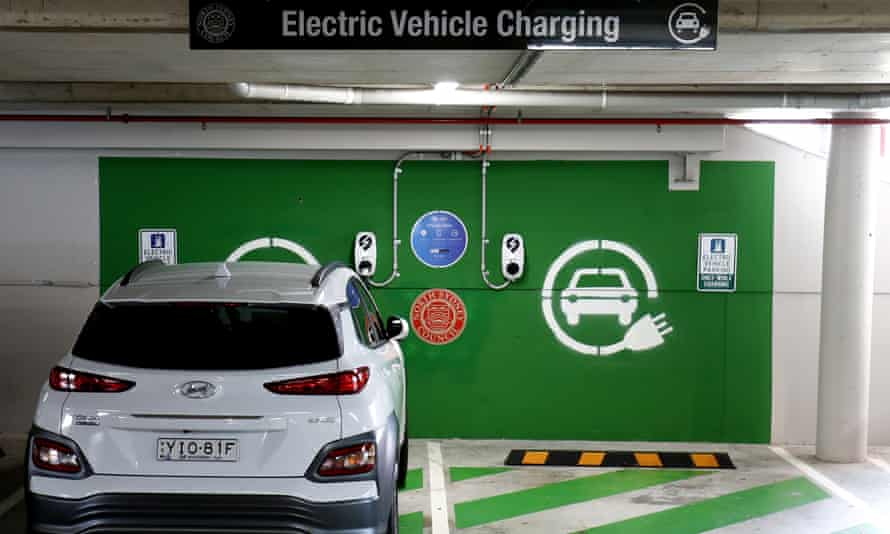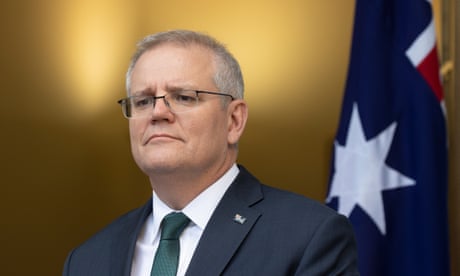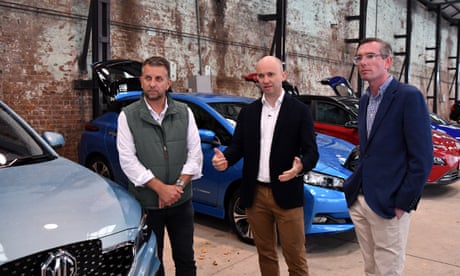Extract from The Guardian
The SA plan comes as manufacturers issue warning over ‘fractured’ Australian EV policy and call for states to scrap stamp duty on new vehicles.

Last modified on Mon 6 Sep 2021 20.17 AEST
South Australian treasurer Rob Lucas has defended his proposal for an electric vehicle user charge in the state as manufacturers warn a “fractured” national approach is only making a clean transition harder.
Under the policy, which was announced in August, South Australia delayed introducing the user charge until 2027 or when EVs represent 30% of the market, and offered drivers a time-limited $3,000 subsidy on the purchase of a new electric vehicle.
The policy attempts to thread the needle between the approach taken in Victoria that involved an immediate introduction of the charge – a move universally panned by industry and experts – while borrowing from New South Wales, which has proposed substantial incentives to support uptake.

The South Australian government’s EV road-user charge has received the backing of the Federal Chamber of Automotive Industries (FCAI) and consumer group the Royal Automobile Association.
FCAI chief Tony Weber described the policy as very generous and said it avoided the worst aspects of the one adopted in Victoria.
Yet while the decision by South Australia to avoid following Victoria’s example has been universally welcomed, twelve vehicle manufacturers, industry associations and policy groups published an open letter on Monday calling on the state government to go further and scrap stamp duty.
Among the signatories was Mitsubishi Motors Australia whose director of marketing and operations, Rob Nazzari said it was important to get the policy right from the start.
“We remain concerned about the impact of the proposed tax on our customers,” Nazzari said. “We need to strike the right balance to ensure that the luxury end of the EV market is not incentivised at the expense of the increasingly popular and family-friendly PHEVs [plug-in hybrid electric vehicles] that will ultimately play a critical role in the low-carbon future for every-day South Australians.”
Lucas said South Australia couldn’t afford to do more and the proposal by the government meant EV drivers would be paying less under the user charge than they are under the fuel excise.
“There’s no magic money tree in all this,” Lucas said. “If ultimately you don’t have any funding coming in via a fuel excise or a road user charge for EVs, then there’s no money coming in for maintaining and upgrading roads.”
Lucas added that the “inevitable” take up of EVs by Australians would force a change to the makeup of the federation.
“If the states are now collecting the revenue the feds were previously collecting, a state government through the road user charge will have the capacity to establish its own priorities,” he said.
However, Richie Merzian from The Australia Institute said this messaging confused the issue as fuel excise taxes do not directly pay for road construction or maintenance.

“The fuel excise does not pay for roads. It stopped doing that in the fifties,” Merzian said. “We pay for roads like how we pay for hospitals, defence and schools: it comes out of the consolidated funds. Consolidated revenue that comes from GST, income tax, a whole variety for sources, which EV drivers already contribute to.”
Volkswagen Group Australia managing director Michael Bartsch, who has been outspoken about the lack of support for transitioning Australia’s car fleet, said this lack of federal leadership means states can “go rogue”.
“The states and territories are left to pursue individual policies on the most profound change to personal mobility in 100 years,” Bartsch said. “There is, of course, more to a mature EV policy than taxation or incentives.”
Behyad Jafari from the Electric Vehicle Council said that without further work these policies will fail to properly introduce the new technology while actually reducing emissions.
“It’s still a tax policy rather than an electric vehicle policy,” Jafari said. “It’s why we want to see a complete policy to support the transition. If you don’t get that now and the tax passes, when will the government work on it?”
No comments:
Post a Comment